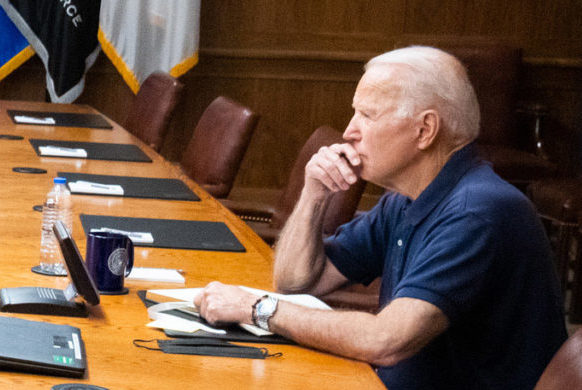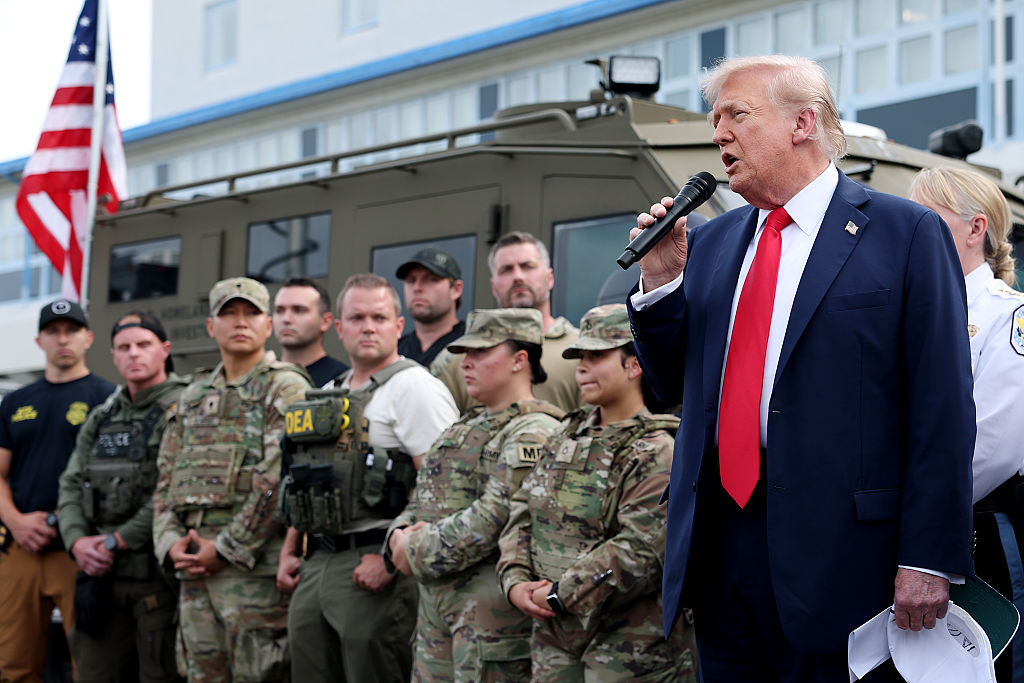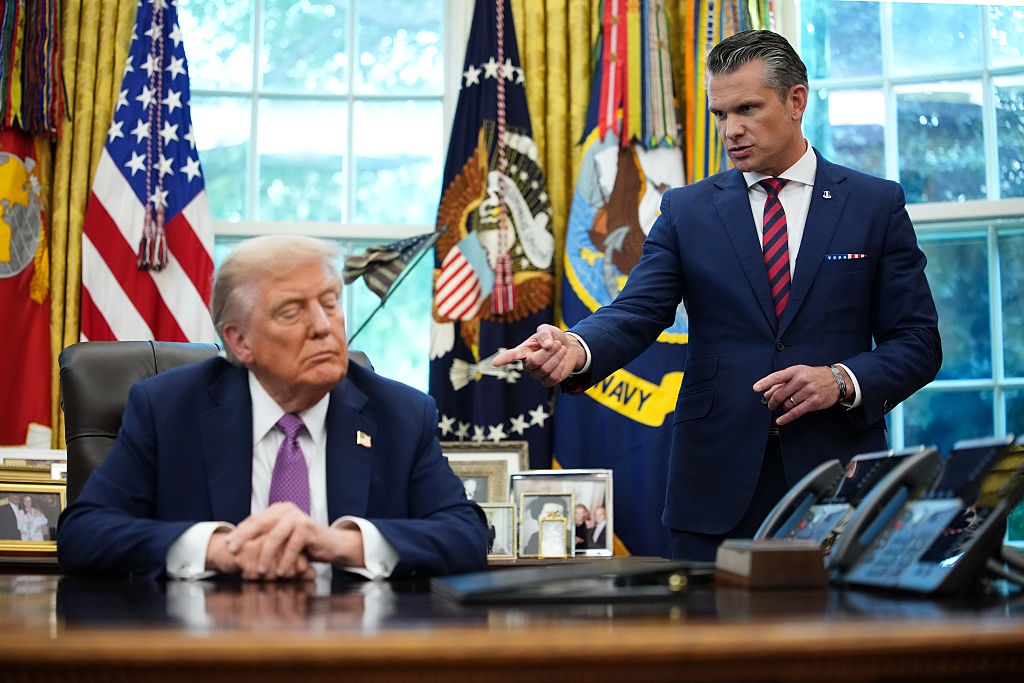The collapse of the Afghan army and state was so rapid and so total that, mercifully, talking heads have already moved on from debating whether the country might have been saved from a Taliban takeover. Everyone now agrees that was impossible, and the trillion dollars spent to prevent it was thoroughly wasted.
Instead, because pundits and politicians must fight over something, the scrum has been over the frantic manner of America’s withdrawal.
Was the Biden administration warned that Afghanistan would collapse in the amount of time typically reserved for a test cricket match? And if so, did it simply ignore those warnings? The line that President Biden has settled on is that, while most estimates thought the country would collapse, they predicted it would at least take a few months to do so.
EXCLUSIVE: Asked about July comment that a Taliban takeover was “highly unlikely,” Pres. Biden tells @GStephanopoulos “there was no consensus” in the intelligence.
“They said it was more likely to be by the end of the year.” https://t.co/3HFqRzzBJg pic.twitter.com/fWo8xNj9GH
— ABC News (@ABC) August 18, 2021
Gen. Mark ‘White Rage’ Milley, meanwhile, has clarified that while he was getting reams of reports predicting an Afghan government implosion, the predictions were mostly in the ‘weeks to months’ range.
Apparently, the Biden administration’s plan was for Afghanistan to collapse, but for the Afghan army’s 300,000 men to let themselves be killed over a nice aesthetic three to six-month period. Then, the Biden administration could thread the political needle: Afghanistan would have collapsed quickly enough for Biden to say nothing could be done, but slowly and smoothly enough that the US could gracefully extract its last diplomat on the last plane out of Kabul before the city fell.
Cockburn professes himself baffled about what, exactly, was the strategy here. Are Pentagon and CIA intelligence analyses just made by a bunch of video game enthusiasts? In a video game, soldiers will gleefully fight to the death for an unseen master’s convenience; even Cockburn has played enough Command & Conquer to know that. In cyberspace, wars are fought to the death, until the weaker side is destroyed and the stronger side is victorious.
In real life, however, soldiers have an inconvenient desire to not die. This survival instinct is universal (except among suicide bombers and the Japanese), and it means that soldiers tend to give up on a cause they realize is hopeless. And this happens even if you’re paying them; in another sign of video-game logic at play, Biden was hoping the Afghan army would fight even though it was not paying its soldiers.
Apparently, the Biden administration believed it could plan to leave, talk loudly about leaving, and prepare intelligence assessments with titles like ‘WARNING: TALIBAN WILL OBLITERATE CRAPPY AFGHAN ARMY’, and still have the Afghan National Army go down fighting. The actual soldiers, unaware that some State Department dork’s reputation hinged on their behavior, decided not to play along, and negotiated a quick surrender to the Taliban that, so far, has apparently been agreeable to both sides.
This realization invites a second, grim realization: that the Taliban’s rapid victory in Afghanistan was a good thing. Sure, the victory of a tolerant and liberal regime in Afghanistan would be best of all, but we now know that was never an option. Washington wasn’t hoping for a victory. They were just hoping for a brutal civil war that would last long enough for them to save face. That war would have killed thousands, or hundreds of thousands, to nobody’s benefit except the credibility of DC think-tankers. But rather than play the role of the Washington generals, the Afghans on the ground chose a better option for themselves: quit. Who can blame them?

























